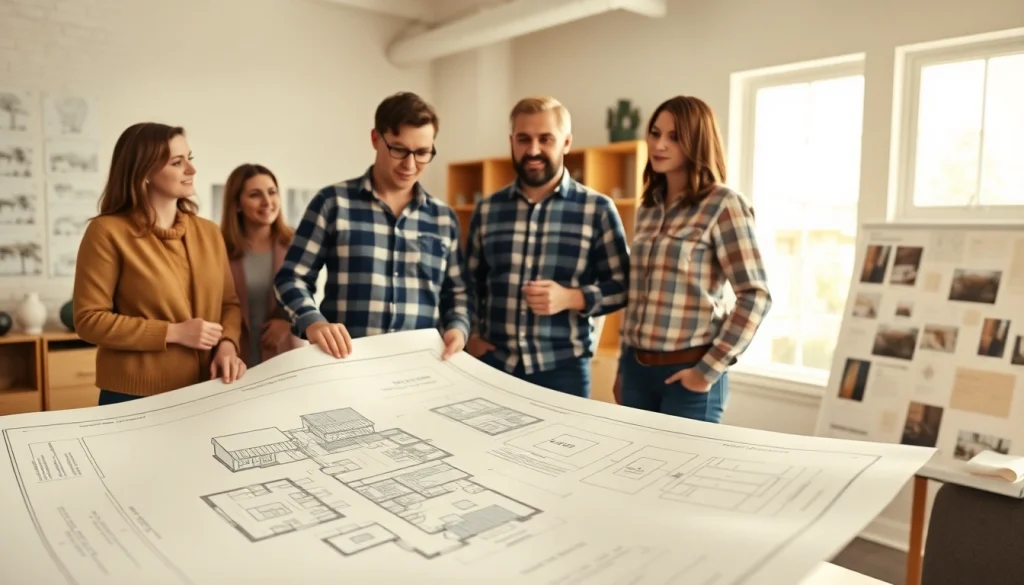
Understanding the Role of Connecticut Home Builders
When embarking on the journey of building your dream home, understanding the roles and responsibilities of connecticut home builders is crucial. These professionals are not just contractors; they are a vital link between your vision and reality. Their expertise not only involves constructing homes but also understanding local regulations, design intricacies, and project management.
Who Are Connecticut Home Builders?
Connecticut home builders encompass a variety of specialists including general contractors, subcontractors, and construction managers. They are responsible for overseeing the entire construction process from start to finish. Some builders focus specifically on custom homes, while others may specialize in modular or prefabricated homes. They work closely with architects, engineers, and homeowners to bring bespoke designs to fruition.
Types of Homes They Build
In Connecticut, builders construct a wide array of homes tailored to meet diverse preferences and needs. The most common types include:
- Single-family homes: Traditional homes designed for one household.
- Townhouses: Often built in clusters that share one or two walls with adjacent homes.
- Modular homes: Prefab homes built in sections and assembled on-site, which are becoming increasingly popular due to efficiency and cost-effectiveness.
- Luxury homes: Custom-built residences featuring high-end finishes, advanced technology, and exclusive designs.
Each type has unique benefits and customization options, empowering homeowners to align the selection with their lifestyle and budget.
Key Services Provided by Builders
Connecticut home builders offer a wide range of services beyond just construction. Key offerings typically include:
- Site Selection: Helping clients choose the best location for their new home based on personal preferences and zoning regulations.
- Design Consultation: Collaborating with architects and designers to create personalized blueprints.
- Project Management: Overseeing the construction process, including scheduling, budgeting, and compliance with local codes.
- Post-Construction Services: Providing services such as warranty coverage and home maintenance advice.
Choosing the Right Connecticut Home Builder
Selecting the right builder is essential to ensuring a successful construction experience. The following factors can help in making an informed decision.
Factors to Consider When Selecting a Builder
When evaluating potential builders, consider the following:
- Experience: Look for builders with a proven track record in constructing homes similar to what you envision.
- Specialization: Determine if the builder specializes in the type of home or building method you desire.
- Project Portfolio: Review their past projects to gauge quality, craftsmanship, and styles.
- Licensing and Insurance: Ensure the builder is licensed and carries adequate insurance to protect you from potential liabilities.
Questions to Ask Your Home Builder
To assess a builder’s suitability, consider asking:
- What is your approach to project management and communication?
- Can you provide references from previous clients?
- What warranties do you offer for your work?
- How do you handle cost overruns or unanticipated expenses?
Reading Reviews and Testimonials
One of the best ways to gauge a builder’s reputation is through reviews and client testimonials. Websites such as Houzz and Angie’s List provide platforms for past clients to share their experiences, allowing potential homeowners to understand the builder’s strengths and weaknesses.
The Custom Home Building Process
The journey to a custom-built home involves several phases, each requiring careful planning and execution.
Initial Consultation and Planning
The process begins with an initial consultation where the homeowner can discuss their vision, budget, and needs with the builder. During this phase, builders often provide insights on feasibility, potential design considerations, and local building regulations.
Design Phase: Customizing Your Home
Once planning is complete, the design phase begins. This involves creating detailed blueprints, selecting materials, and ensuring that the design complies with zoning laws. Architects and interior designers often collaborate closely with the homeowner to tailor features such as layouts, finishes, and landscaping.
Construction and Project Management
With designs finalized, the construction phase begins. Effective project management is critical here, involving coordination of subcontractors such as electricians, plumbers, and carpenters, as well as ensuring that the project stays on schedule and within budget.
Cost Considerations for Building a Home in Connecticut
Understanding costs associated with homebuilding is vital to avoid unexpected financial burdens.
Average Costs of Custom Homes
The cost to build a home in Connecticut varies significantly based on materials, design complexity, and location, generally falling between $200 to $400 per square foot. Custom luxury homes can reach higher price points depending on finishes and features.
Financing Options for Your New Home
Homebuilders in Connecticut typically assist clients in navigating financing options. Common avenues include:
- Conventional Loans: These offer competitive interest rates but require significant down payments.
- FHA Loans: Ideal for first-time homebuyers with lower income and down payment requirements.
- Construction Loans: Short-term loans that cover the construction phase before transitioning to a permanent mortgage.
Potential Hidden Costs
In addition to known costs, potential hidden expenses can accrue, including:
- Permitting Fees: Required for construction, these can add up based on the project scope.
- Landscaping and Site Preparation: Often overlooked, these can significantly impact the final bill.
- Unforeseen Delays: Additional costs may be incurred due to extended timelines or changes in plans.
Trends in Connecticut Home Building
Staying informed on current trends can help homeowners make better decisions tailored to modern needs and aesthetics.
Current Design Trends in Connecticut Homes
Connecticut builders are increasingly embracing open floor plans, energy-efficient designs, and the integration of smart home technology. Outdoor living spaces are also popular, merging indoor and outdoor environments.
Eco-friendly Practices Among Builders
Green building practices are on the rise, with many builders adopting eco-friendly materials, renewable energy sources, and water conservation techniques. This trend not only benefits the environment but can also reduce long-term utility costs for homeowners.
Future Outlook for Home Building in Connecticut
Experts predict a continued demand for custom home building in Connecticut as the population grows and more individuals seek personalized housing solutions. Innovations in technology and sustainable practices are likely to shape the future landscape of home building in the state.





